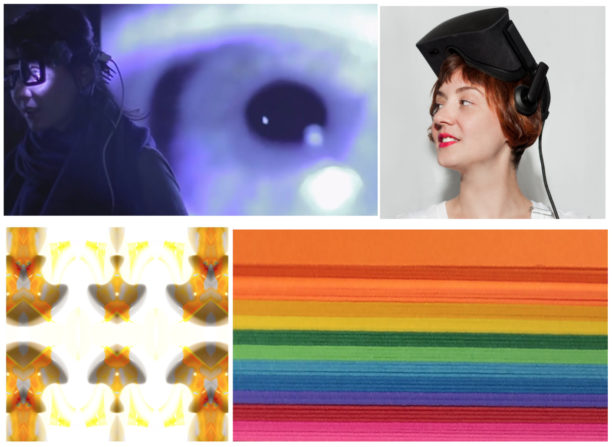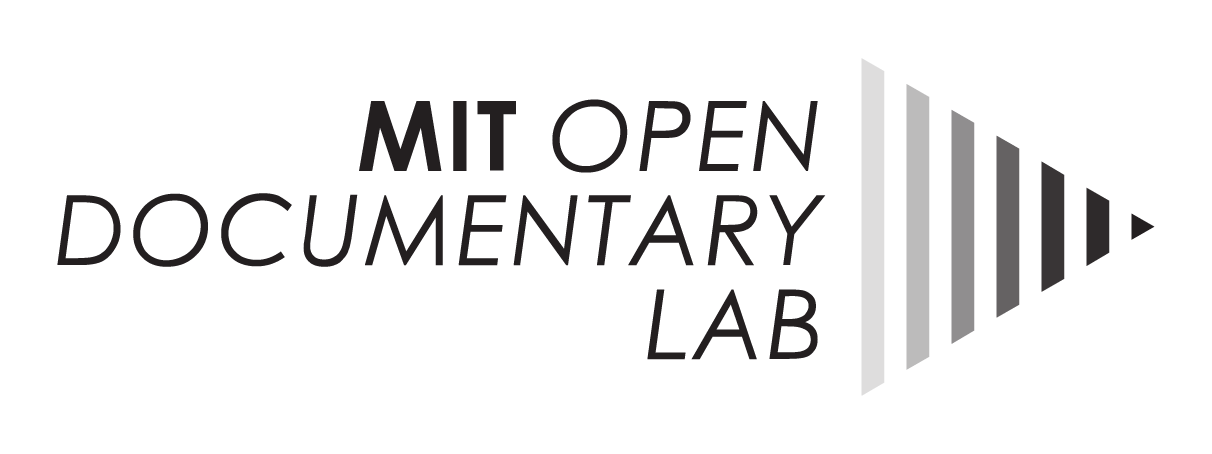26 Sep A New Tech Code for Seven Generations: Meet the Co-Creation Studio’s new Mozilla Fellow
September 25, 2019
Renowned artist/technologist Amelia Winger-Bearskin (Seneca-Cayuga Nation of Oklahoma) is the new Mozilla Fellow hosted at the Co-Creation Studio at MIT Open Documentary Lab.

Amelia Winger-Bearskin, artist/technologist, is the 2019-2020 Mozilla fellow hosted at Co-Creation Studio at MIT Open Documentary Lab.
It’s a first for the Studio — and the Lab as a whole — to host a Mozilla Fellow as part of Mozilla’s global efforts to improve internet health. The 2019-2020 fellowship program supports 25 global fellows, including artists, technologists, lawyers, activists and scientists, many hosted at international organizations dedicated to democracy, accountability and models in technology that help rather than harm.
During her time at the Co-Creation Studio, Winger-Bearskin will develop a new project, entitled Wampum.code, that brings greater accountability to tech with a new model for values-based dependencies in software projects. Her model is founded in Indigenous values and practices, specifically Haudenosaunee, or Iroquois, a Confederacy of six Indigenous Nations.
“Stories are the oldest technology we have as humans,” said Winger-Bearskin. “They help us to encode our values, technologies, teachings, survival strategies into various media. In Hodenoshounee culture, storytelling is a means of encoding the social values of the community. We believe contributions to the community should be made to last for seven generations. In my culture, ethics, technology, and storytelling are fused in a way that might seem foreign to the Western perspective. My goal in this project is to ask how my tribe’s way of sharing information could be applied to make software projects more ethically robust. The ethics in storytelling are pretty much the same as ethics we need for software development. The heart of the matter is: how to make explicit the values we are encoding into software?”

The Great Law of Peace Wampum belt, a key inspiration for American democracy, had encoded principles of democracy of the Iroquois Confederacy directly in the beading. With Wampum.code, Amelia Winger-Bearskin suggests that like the wampum, our contemporary systems of computer coding have embedded directly in them, our social values. Rather than just “correcting for bias” in the algorithms, we need to rewrite and rewire the actual code, founded on ethical principles.
To develop the project, Winger-Bearskin will co-create with her community as well as other Indigenous Nations to shape the concept through workshops, and partnerships.
“There has never been a greater urgency to rewire and rebuild our technology systems from the code on up, “ said Katerina Cizek, Artistic Director and Co-PI of CoCreation Studio at MIT Open Documentary Lab. “We know that the answers to the world’s biggest emergencies, all profoundly interconnected with our current technologies — the Climate Crisis, the collapse of democracies, the global economic and racial injustices — they all need to be aligned and driven with Indigenous-centred approaches. That’s why we are honoured to welcome Amelia Winger-Bearskin to bring her artistry, wisdom, technical experience and energy to the studio and lab, with her remarkable project Wampum.code.”
Winger-Bearskin will also draw on her interdisciplinary experiences as a Non-Profit Founder and Executive Director of IDEA New Rochelle, professor, creative advisor to Sundance New Frontiers Lab, as well as her artistic endeavors, including VR/AR/XR and Video art permanently housed at Guggenheim Museum and the McCord Museum.
“The caliber of fellows across the Mozilla program is world-class, and we are privileged to welcome Amelia Winger-Bearskin to the studio, lab and greater MIT community,” said William Uricchio, Principal Investigator of the Co-Creation Studio, MIT Open Doc Lab, and professor of Comparative Media Studies.
In addition to her own project, Winger-Bearskin will also contribute to the development of the studio, which recently released a ground-breaking study entitled Collective Wisdom: Co-Creating Media within Communities, across Disciplines and with Algorithms. Winger-Bearskin’s work embodies the many dimensions of co-creation: working within community, across disciplines and with algorithms.
“Amelia Winger-Bearskin’s Wampum.code project is exactly the kind of work that we want to support in the studio and lab. It’s looking to indigenous storytelling practices to offer new models for technology development that are ethical and based on community values” said Sarah Wolozin, Director of Open Documentary Lab, and Co-PI of the Studio. “We welcome her into our community and look forward to supporting her work.”
Winger-Bearskin will also participate as an Open Documentary Lab fellow, joining the current cohort of 15 fellows who develop their projects in residency at MIT.
The Mozilla fellowships begin October 1, 2019, kicking off with the first gathering of the fellows and host organizations at Mozfest in London England later in the month. Winger-Bearskin will bring workshops, lectures and mentorship to the MIT community throughout her tenure as fellow until June 2020.



